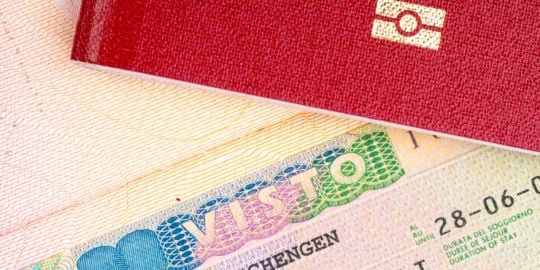Formalities for staying in Italy

Looking forward to la dolce vita? Before you travel to Italy, it's important to ensure that you have prepared all the necessary documents for travelling and that you understand which procedures you must follow once you arrive in the country.
Before you go
Entry Visas
EU citizens, EEA citizens, and Swiss Nationals do not need any form of visa to enter Italy. Members of the Schengen Area can also travel to Italy for 90 days or less, and you can check whether your country of citizenship is in the Schengen Area on the Schengen Visa Info website.
If you are a citizen of any country not mentioned in the above, you may need to obtain a visa before travelling to Italy. For more details on visas, read our short-term and long-term visas articles.
Children travelling alone must also submit an authorisation to leave their country of citizenship.
Healthcare
You should visit a healthcare professional around four to six weeks before travelling to ensure your required vaccinations are up to date and that you have taken any other necessary preventive measures. To date, you do not need any specific vaccinations to visit Italy although if you have any concerns, you can check the TravelHealthPro website for more specific information.
You should also ensure you have travel and health insurance before your departure.
Important:
If you are from the EU, you are entitled to a free European Health Insurance Card which entitles you to any state treatments required during your stay. Note that this is not a substitute for medical and travel insurance, as it does not cover medical repatriation, ongoing treatments, or non-urgent treatments.
Research
Make sure you have thoroughly researched the area you wish to move to, as towns and regions differ greatly. For example, while Italy is a relatively safe place to travel to, many parts of Italy lie on a major seismic line, and minor tremors and earthquakes are a regular occurrence ' a fact you may wish to take into account if you are thinking about buying property. For more information visit the Protezione Civile website.
Money
Italy uses the Euro exclusively. You may wish to exchange a small sum of money before you arrive to ensure a more favourable exchange rate or register for a specialist credit card which does not charge transaction fees, withdrawal fees, and interest (subject to specific conditions). Use a comparison site such as Finder for more details.
Driving in Italy
If you plan to drive in Italy, you will need to ensure you have the relevant license to do so. If you are a European citizen, an EU drivers license will suffice, though those who do not possess one will need to apply for an international driver's license before travelling to Italy.
Good to know:
By law, you must be able to show some form of identification at all times. Copies are sometimes accepted, though you may be asked to provide an original copy within 24 hours. Police will usually always ask for your passport, an identity card, as well as a full license.
Once you arrive
If you plan to stay in Italy for longer than 90 days, you must ensure that you have signed the Declaration of Presence, which can be filled out at the local police headquarters. If you already possess a Uniform Schengen Visa, you will not need to apply for a separate Declaration of Presence. If you decide to work or study in Italy, you will have to apply for a "Tax Code" on your arrival. This number will allow you to complete all administrative procedures and grants you the right to work or study in the country. If you are planning to stay in Italy permanently, you will need to apply for a resident permit at the nearest town hall.
Useful links:
European Commission
gov.uk
TravelHealthPro
Protezione Civile website
Finder
Schengen Visa Info website









